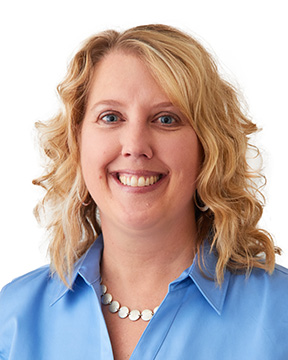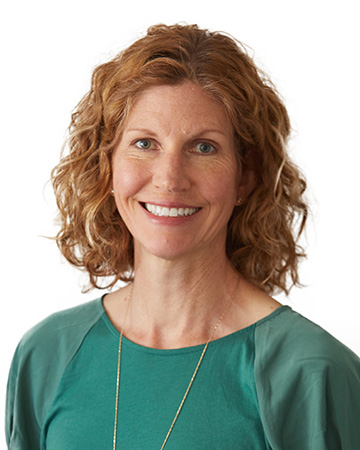Physical Therapy
Clinical education
Thank you for your interest in the University of Wisconsin La Crosse’s Department of Physical Therapy Clinical Education Program. We are proud to offer 42 weeks of high-quality, hands-on clinical education experience to our Doctor of Physical Therapy students.
Experiential Learning that Transforms Knowledge into Practice
Clinical education is a cornerstone of our Doctor of Physical Therapy (DPT) program, providing students with the opportunity to apply classroom learning in real-world clinical environments. From the first year through graduation, students develop clinical reasoning, professional behaviors, and hands-on skills essential to becoming a competent and compassionate physical therapist.
Our philosophy emphasizes collaboration between academic and clinical faculty, fostering an educational experience that integrates evidence-based practice, patient-centered care, and professional growth.
Map of Affiliations
 Map of Affiliations
Map of Affiliations
UW-La Crosse contracts with approximately 325 organizations with over 1,430 locations in 38 States.
Clinical Learning Outcomes
By the conclusion of their clinical education, students will demonstrate:
- Competence in patient examination, evaluation, and intervention planning.
- Effective communication and collaboration with patients, families, and members of the healthcare team.
- Ethical and professional behaviors aligned with the APTA Code of Ethics.
- Integration of evidence-based practice into clinical decision-making.
- Commitment to lifelong learning and professional development.
Professional Expectations
Students represent both the university and the physical therapy profession during their clinical experiences. Adherence to professional conduct, ethical standards, confidentiality, attendance, and dress code expectations is required. Clinical education is not only a test of skills—it reflects professional identity.
Clinical Education Curriculum
Year 1: Two-week experience during the Winter 1 semester
During the first clinical education experience, students are placed in a clinical facility where they apply recently learned skills in a real-world healthcare environment. Under supervision, students gain foundational experience in reviewing medical charts, obtaining patient histories, performing basic assessments and interventions, practicing safe patient handling techniques, and observing the role of the physical therapist within the interdisciplinary healthcare team. The patient population varies according to the assigned clinical setting.
Year 2: Four-week experience at the end of Summer 2 semester
In the second year, students are assigned to a clinical facility to further develop and refine their clinical competencies under the supervision of a licensed Physical Therapist Clinical Instructor. Building on prior experiences, students engage in intermediate-level skill application and provide supervised care to patients across a variety of settings, including acute care hospitals, rehabilitation centers, outpatient clinics, skilled nursing facilities, schools, home health, and wellness centers. The patient population varies based on the assigned clinical environment.
Year 3: Three consecutive twelve-week experiences following all didactic education starting Summer 3 semester
In the final year, students complete three 12-week full-time clinical education experiences in assigned clinical settings under the guidance of a licensed Physical Therapist Clinical Instructor. Collectively, these experiences prepare students to provide comprehensive patient management across the lifespan and continuum of care. Students demonstrate competence in applying the patient management model to individuals with musculoskeletal, neuromuscular, cardiovascular, pulmonary, and integumentary conditions.
We are proud to partner with leading hospitals, rehabilitation centers, outpatient clinics, and community-based facilities. These partnerships offer students high-quality learning experiences and exposure to the diverse roles physical therapists play across the continuum of care.
Clinical Placement Process
The clinical placement process includes a review of student preferences, optimized matching through clinical placement software, and an evaluation of all clinical placement assignments by the faculty and clinical education team. Student clinical placement assignments are determined by multiple factors, including individual needs, program requirements, and site availability. The faculty ensures that all students gain experience across a variety of clinical settings, preparing them to serve a diverse patient population and successfully secure employment after graduation.
Clinical Partners
Our clinical partners are essential to the success of our Doctor of Physical Therapy (DPT) program. Through collaboration with outstanding hospitals, rehabilitation centers, outpatient clinics, and community organizations, students gain the hands-on experience needed to become skilled, compassionate, and reflective practitioners.
Together, we prepare future physical therapists to deliver patient-centered, evidence-based care across the continuum of healthcare.
We view clinical education as a collaborative process that bridges academic knowledge with real-world practice.
Our goals include:
- Fostering mutual learning between students and clinical instructors.
- Promoting clinical excellence through mentorship and reflective practice.
- Supporting evidence-based, ethical, and culturally responsive patient care.
- Strengthening the connection between the academic community and clinical settings.
We deeply value the time, expertise, and commitment our clinical partners provide in mentoring the next generation of physical therapists.
- Exxat Clinical Education Portal
- APTA Clinical Performance Instrument (CPI 3.0)
- Clinical Instructors are required to access and complete the Clinical Performance Instrument - CPI 3.0 to evaluate student performance during clinical education experiences.
Once you have successfully completed the CPI training module, your student will enter your information into Exxat’s Clinical Instructor Details. Our clinical education administrative assistant will then link you with your student in the CPI system.
Troubleshooting CPI Access
If you experience difficulty accessing your student’s CPI, please verify the following:
- You have completed the CPI 3.0 training module.
- You are using the same email address associated with your APTA Learning Center account (membership is not required).
For additional assistance, please contact:
CPI 3.0 Support
cpi@apta.org
1-800-999-2782, ext. 8582
APTA Learning Center / Login Assistance
membersuccess@apta.org
1-800-999-2782
For assistance with CPI linkage, please contact:
Emilee Mielke, Clinical Administrative Assistant
emielke@uwlax.edu








